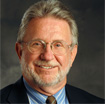“How shall they hear,” Paul wonders, “without a preacher?” (Romans 10:14 KJV).
And I might add, how can we preach without reading? There is no “word” without words, and words must be fed and nourished and replenished through reading.
True, oral tradition served for millennia, and it still has its place (“Jesus loves me, this I know, for my mother told me so,” as my now-deceased colleague Carl Volz used to sing). And preachers in remote or preliterate cultures preach with the tools (or lack thereof) at hand. If they have a Bible, they read it, of course — often more regularly than some of us — and they pore over the few books available to them.
When the Luther Seminary in Zimbabwe program was in full swing, participants regularly filled suitcases with books to take to African pastors and the seminary library in Harare, and the arrival of these treasures was invariably greeted not merely with thanks but with celebration and ululation.
A few years back, I was offered a “better” job, measured by salary and some estimates of prestige, but I returned that call in part at least because I could no longer envision myself in a place without a chapel and a library. My father once noted that the only “better” or “higher” calling than seminary professor was parish pastor — congratulating me on my call to Luther years ago, even if it was, as he said, a “step down.”
Still, my present office, literally a few feet away from the entrance to one of the best theological libraries in the country, is a privileged place. Because of that privilege, I try quickly to return books requested by remote pastors, gratified that they want to read the same stuff I do and mindful that their need, at least in the moment, is greater than mine.
In his wonderful description of libraries both historical and personal, Alberto Manguel observes, “Outside theology and fantastic literature, few can doubt that the main features of our universe are its dearth of meaning and lack of discernible purpose.”1 Which is to say, friends, that we have work to do! Meaning is at stake.
Preaching is imperative to convey that meaning, with theology the meat and potatoes of such preaching. And reading — input from outside our own frame of reference — is the commissary for those needed ingredients.
I have had privileged access to many libraries over the years — including, as a high-school student working on term papers, none other than the Library of Congress where “That’s not in our collection” was not part of their vocabulary. There have been architecturally gorgeous libraries, like the stone-towered structure in Heidelberg and the cozily inviting tall windows and arches of the Carnegie public library a block or so down the street from the seminary.
Curiously, I find the new Ramsey County Library a few miles away in Roseville to be a cold and sterile place; deliberately so, I have to think, to appeal to a different demographic. That building is to libraries, I suppose, what the auditorium-style megachurch is to religion — deliberately “un-Gothic,” deliberately geared to other kinds of media and other kinds of people. The Roseville library does have a great coffee shop, of course, as do many megachurches — whatever it takes!
Still, the building is a place; the library is the books — or now, the collection of books, discs, computers and what have you (all enabled, of course, by a staff that shows you the way in and around the collection).
But now that we can Google all knowledge — or worse, access sermons online to cut and paste for next Sunday (please make a cross with your fingers here to ward off that evil thought) — do we still need books? I am among those who believe that books will not soon be going away, and I rejoice in that, not least because of their very tangibility. I can’t quite envision “curling up with a good Kindle” (though others tell me they are getting there) — and I think that is not merely nostalgia.
“The word became flesh” announces a tangible presence of God that is, I think, not the same as a spiritual presence — or a digital presence. As Manguel argues at length, the shape and size of a book matter, announcing something about its identity and purpose.2 Reading the Sunday lessons from a good-sized Bible on the lectern offers a different experience than reading the same words from a bulletin insert or a screen.
Reading an online article from, say, Word & World‘s website, where one finds a PDF version of the journal itself — something that looks like a journal — is a different experience than reading an e-journal with run-on text and essentially no formatting (though the PDF file, as good as it is, still doesn’t feel or smell like a printed page).
If style and format, smell and touch — indeed, all of our senses — make no difference in our reading, we could all be replaced by avatars (and many of e.e. cummings’s poems would have no reason for being). A forced “choice” between books and electronic records is, as Manguel notes, “worse than useless,” for these are “different creatures and possess different natures, even when the text they carry is the same.”3
So, I continue to rejoice in books and libraries — not only for their content, but for their very reality. But their content is what makes them essential for preachers and sermon preparation. To steal a quote or anecdote or illustration from an online source is very different than bringing one up from one’s own experience of life and reading.
The stolen story or quotation has no backstory, no depth, no context — and even if these are not made visible in a particular sermon, their lack shows in the shallowness of their use. To say, “I was reading War and Peace last night, and I came across this wonderful sentence…” is simply a lie if the sentence was derived from an online search result.
A sermon can’t lie — not in little things, not in big things, and many, if not most, hearers will be able to tell. If you found a great story online, say so! But don’t be content with that: read the book, read the text, read the context, read the audience and never apologize for spending time in such reading. Revel in the depth and wonder of it all. It may well be among the most important things you do for your congregation.
1Alberto Manguel, The Library at Night (Toronto: Knopf Canada, 2006) 3.
2Alberto Manguel, “The Shape of the Book,” in A History of Reading (New York: Penguin, 1996) 125-148.
3Alberto Manguel, A Reader on Reading (New Haven: Yale University Press, 2010) 283. The three volumes by Manguel cited in these notes are rich commentaries on the history, meaning, shape and future of reading. I recommend them highly.

